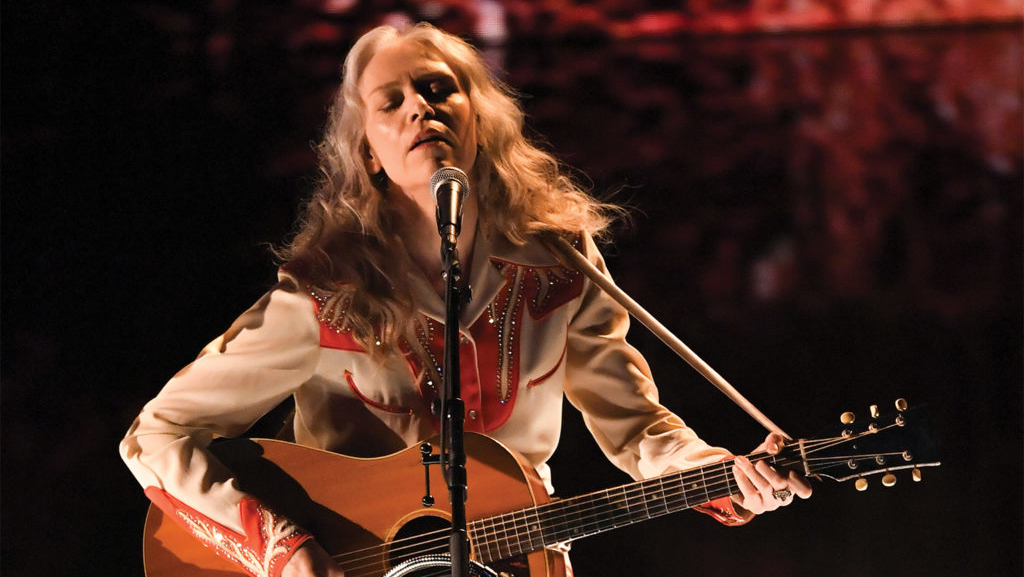Perhaps most extraordinary about the song which sums up the sorry state of the music industry in the 21st century better than any other is how early in the new millennium it arrived. Gillian Welch’s Everything Is Free was released on the Nashville country-folk singer’s defining album Time (The Revelator) in July 2001. Coincidentally the same month in which Napster was shut down for copyright infringement, having spectacularly let the genie out of the bottle insofar as MP3 sharing, the collapse of physical sales and the devaluation of recorded music in the digital era goes.
Listening to it today, at a time when Covid-19 has wrecked live touring – the only dependable source of income most full-time musicians had left when streaming still pays a pittance – Welch’s angry lament for the slow demise of professional songcraft sounds near mystically prescient, and more hauntingly sad than ever. Little wonder it resonates strongly with a new generation of musicians from Phoebe Bridgers and Courtney Barnett to Father John Misty and Conor Oberst, all of whom have covered Everything Is Free.
“Everything is free now, that’s what they say,” Welch begins plaintively over softly picked chords, “everything I ever done, gonna give it away.” She ponders if she might not need go back to singing for tips in a bar, or even get a straight job (“I done it before”), eventually consoling herself with the thought that at least nobody can take away the private joy of singing to herself.
“That song is like a lightning rod of white-hot anger,” explained Welch to Rolling Stone. “I want people to feel the robbery, the theft. I want them to understand all of our guilt and culpability in this situation.” Phoebe Bridgers injects added fury to her cover with an F-bomb and a long pregnant pause that switch the final verse into a seething excoriation of the freeloading listener. “If there’s something that you want to hear,” she spits, “fucking sing it yourself.”
The song has come to represent a howl of indignation against the entire culture of free that infects the musical ecosystem – an elegy for the boarding up of much-loved record shops and the shutdown of iconic magazines like Q. It’s the song I thought of recently when Spotify CEO Daniel Ek enraged many with glib comments about how it’s a “narrative fallacy” that his £38bn operation doesn’t pay musicians sufficiently (average fee per stream: £0.0004), instead blaming them for not pumping out material quickly enough, “creating a continuous engagement with their fans”. As if songwriters are merely mindless content creators and not artists whose work is hard wrought of human experience, emotions and aspirations?









